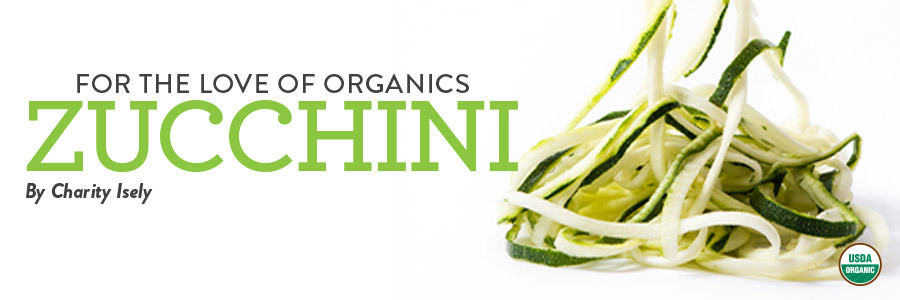


Sign-up for {N}power to get exclusive discounts, newsletters, members-only features, and more!
 Denver - Design District - Alameda and Broadway
Denver - Design District - Alameda and Broadway
368 S Broadway
Denver, CO 80209
United States
 Preferred Store:
Select a Store
Preferred Store:
Select a Store

Next month, gardeners everywhere will celebrate the dilemma of surplus summer squash on August 8th with “Sneak Some Zucchini Onto Your Neighbor’s Porch Day.”I It’s an entertaining concept, but once you discover how nutritionally dense and versatile zucchini is, we think you’ll leave the porch light on to welcome the neighbors dropping off their extras!

There are only 33 calories in one medium zucchini,ii but it brings an abundance of vitamins, minerals, and phytonutrients, including our favorites, lutein and zeaxanthin!iii This potent pair of antioxidant carotenoids are uniquely beneficial to your eyes and brain, supporting healthy function and protecting these important organs from oxidative damage. In the eyes, lutein accumulates in the macula, located in the retina, filtering blue light and shielding against free-radical damage and studies suggest that higher levels of lutein and zeaxanthin may decrease the risk of age-related macular degeneration (AMD).iv v In the brain, lutein supports healthy brain function as we age.vi Our bodies don’t naturally make them, so dietary intake is crucial.vii viii Vitamins A and C, calcium, and magnesium are also found in this nutritional goldmine,ix so pull out the spiralizer and take advantage—Natural Grocers Zoodles with Lemon-Parsley Pesto and Shrimp is a delicious place to start!
"The trouble is, you cannot grow just one zucchini. Minutes after you plant a single seed, hundreds of zucchini will barge out of the ground and sprawl around the garden, menacing the other vegetables…" –Comedian Dave Berry
Zucchini holds another distinction among fresh produce, besides being fun and versatile. It’s also on the Non-GMO Project’s list of high-risk crops.x xi While the majority of GMO crops are commodity crops such as corn, cotton, soy, and canola, zucchini is one of only two fresh vegetables that has been genetically modified (potatoes are the other). Both zucchini and its cousin, yellow crookneck squash, have been modified to resist specific plant viruses. Because no safety assessment of GMOs is required in the U.S., the market is wide open for genetically-modified produce.xii xiii Always keep your grocery list organic to steer clear of the unexpected!
Jokes about an abundance of zucchini are deliciously fun, but pollination comes first.xiv xv Unfortunately, twelve of the forty pesticide residues found on summer squash were toxic to its primary pollinators—honeybees.xvi When it comes to your menu, remember this: the highest concentration of carotenoids are in the peel, which is also exposed to the most chemicals.xvii Choose organic for the sake of the bees and make your next loaf of zucchini bread with organic zucchinis, grown in harmony with nature, with zero synthetic pesticides and always non-GMO!



Sign-up for {N}power to get exclusive discounts, newsletters, members-only features, and more!
